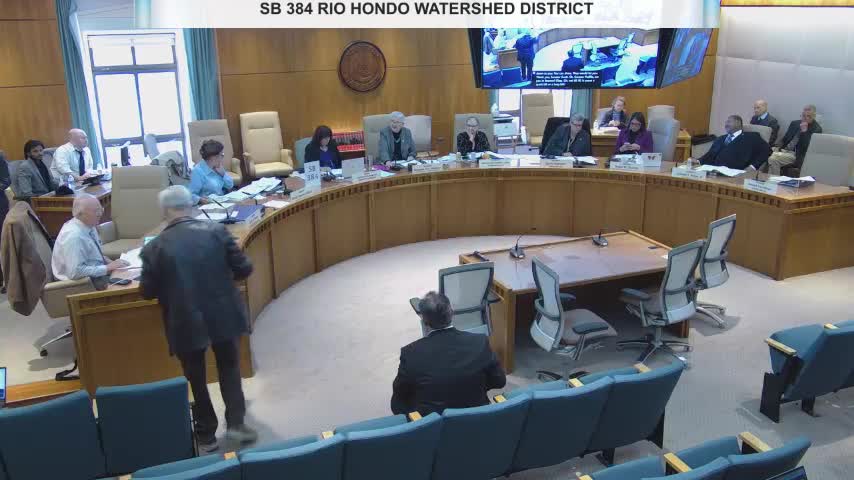Committee advances microgrid tax credit aimed at underserved communities; bill wins unanimous committee support
Get AI-powered insights, summaries, and transcripts
Subscribe
Summary
Senate Bill 418 would create a $100,000 refundable/transferable tax credit per qualified microgrid, administered by the Energy, Minerals and Natural Resources Department, to incentivize microgrids and generation in underserved New Mexico communities. The committee returned a unanimous do-pass recommendation.
The Senate committee advanced Senate Bill 418, which would establish a qualified microgrid tax credit designed to spur construction of microgrids and associated generation in underserved communities across New Mexico.
Sponsor Senator Michael Padilla told the committee the credit would be $100,000 per microgrid, claimable by eligible taxpayers through the Energy, Minerals and Natural Resources Department (EMNRD) within 12 months following the taxable year of installation. The bill includes transferability and carry-forward provisions; eligibility excludes taxpayers who previously received a similar credit, the sponsor said.
Jennifer Bradfield, introduced as an energy attorney working with projects that would use solar-powered microgrids for economic development, said developers see microgrids as a way to bring digital infrastructure, manufacturing and data centers to parts of the state that currently lack reliable utility connections. Mike D’Antonio of Xcel Energy said the provision could allow large projects to get power sooner without taking capacity from local residential customers; Charles Goodmacher, a registered lobbyist, said business groups supporting electrification back the measure.
The bill sets a 20-megawatt floor in language describing eligible self‑generation resources and uses the Energy Transition Act (ETA) as the overriding standard for energy generation of this nature, the sponsor said; committee testimony repeatedly referenced compliance with the ETA and that microgrids would be subject to existing ETA rules.
Committee members asked about the bill’s likely uses (large subdivisions, data centers, manufacturing sites), the definition of “underserved community” (based on median income near the federal poverty level), and whether projects receiving the credit could also obtain industrial-revenue bonds (the sponsor said they could). Members raised questions about the bill’s effect on Public Regulation Commission (PRC) rate-setting authority; the sponsor and experts said project rates would be set through negotiated electric service agreements rather than through the PRC.
After discussion, Senator Hamblin moved a do-pass recommendation and Senator Sadia Lopez seconded. The committee returned a unanimous do-pass and sent the bill forward.
What happens next: the bill proceeds to the next committee or the Senate floor for further review and potential amendment.
